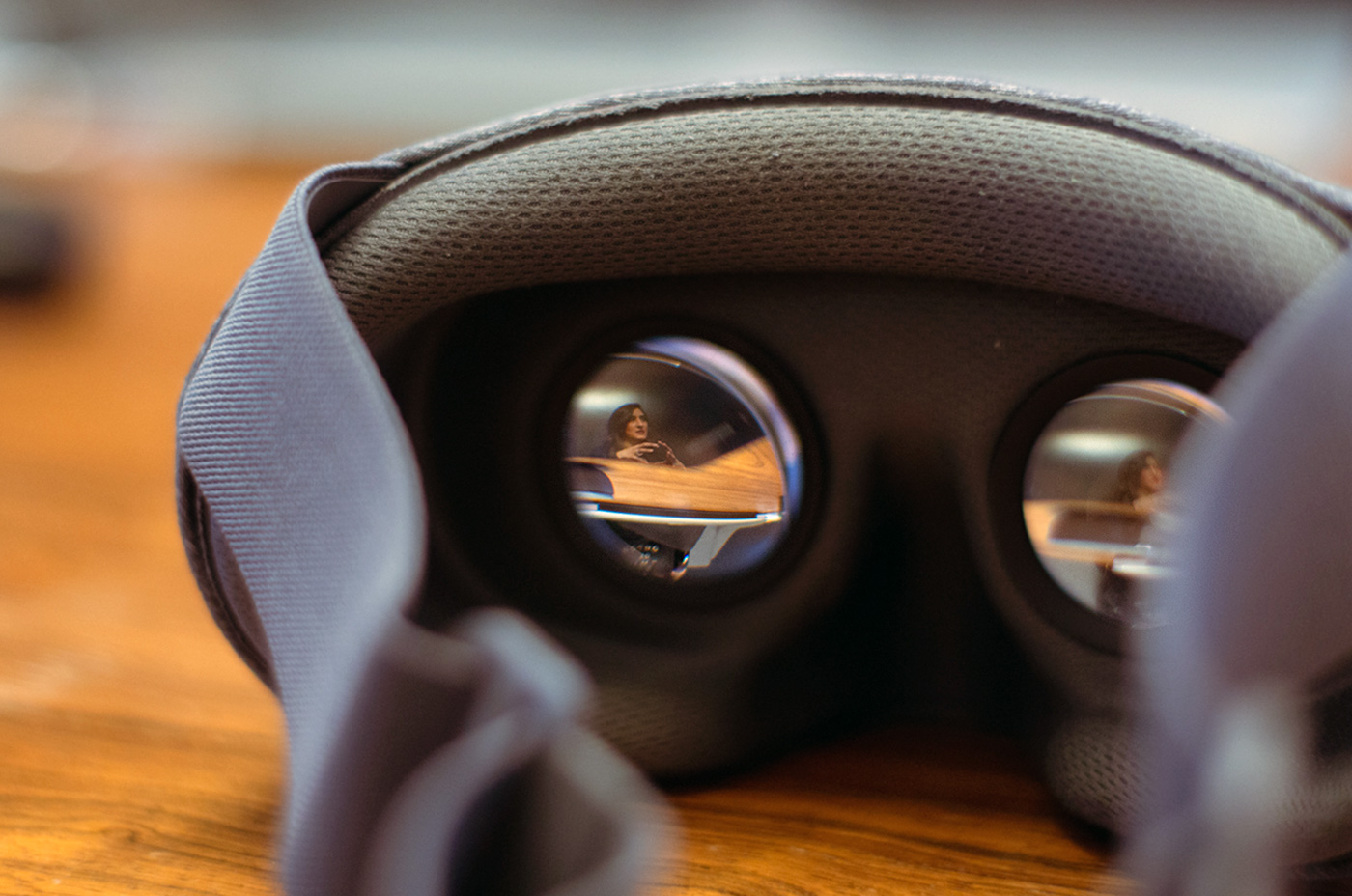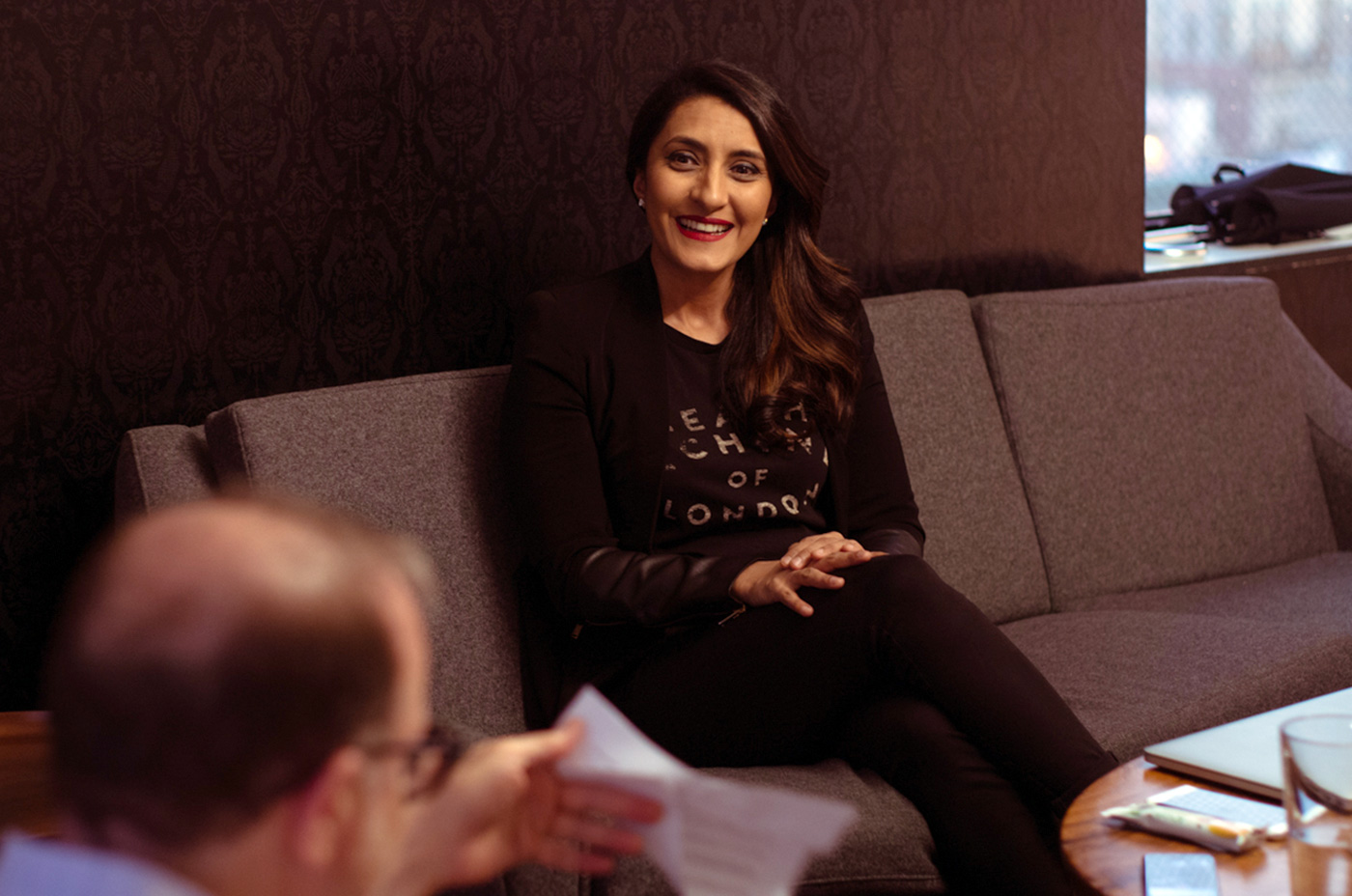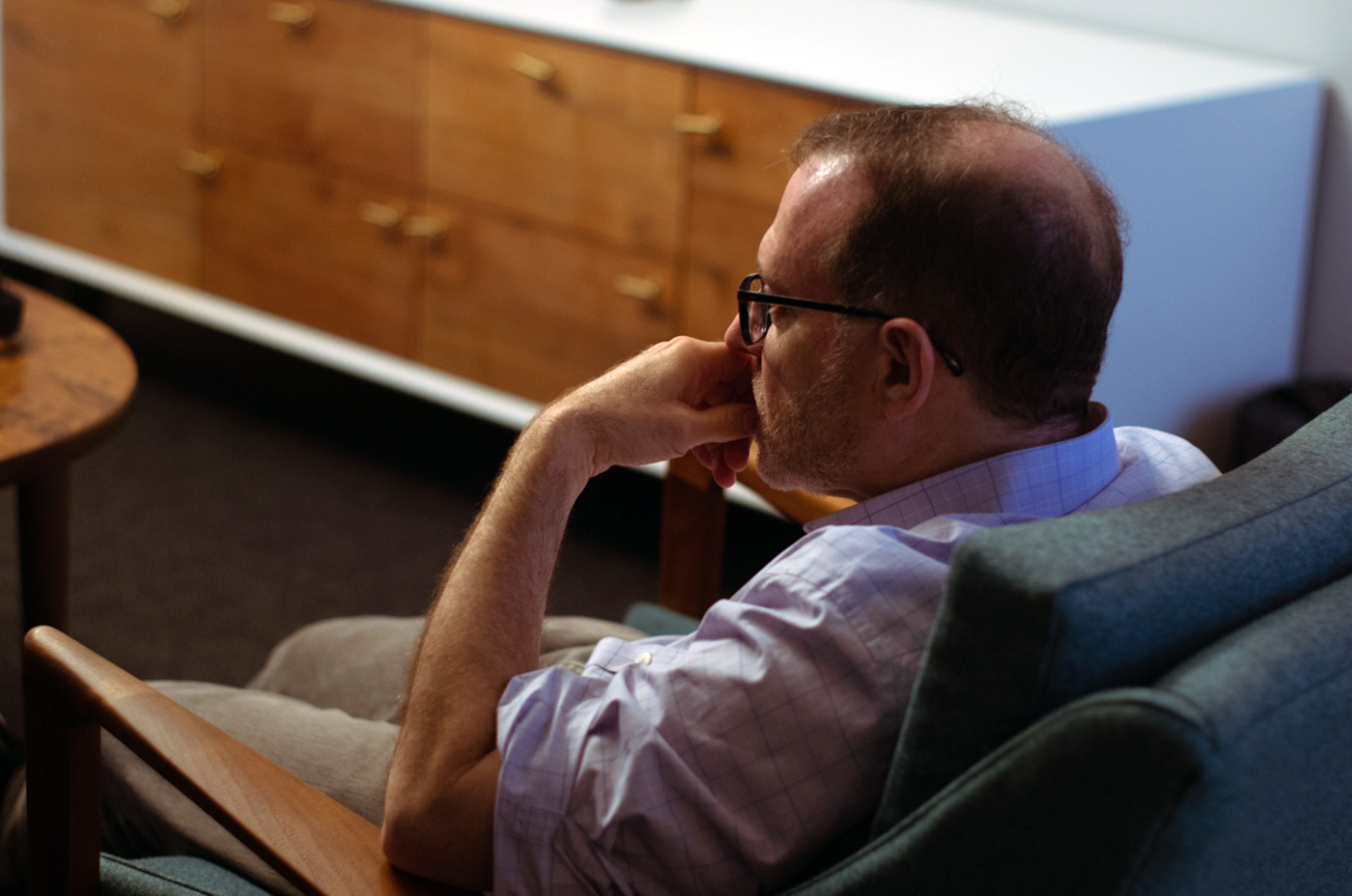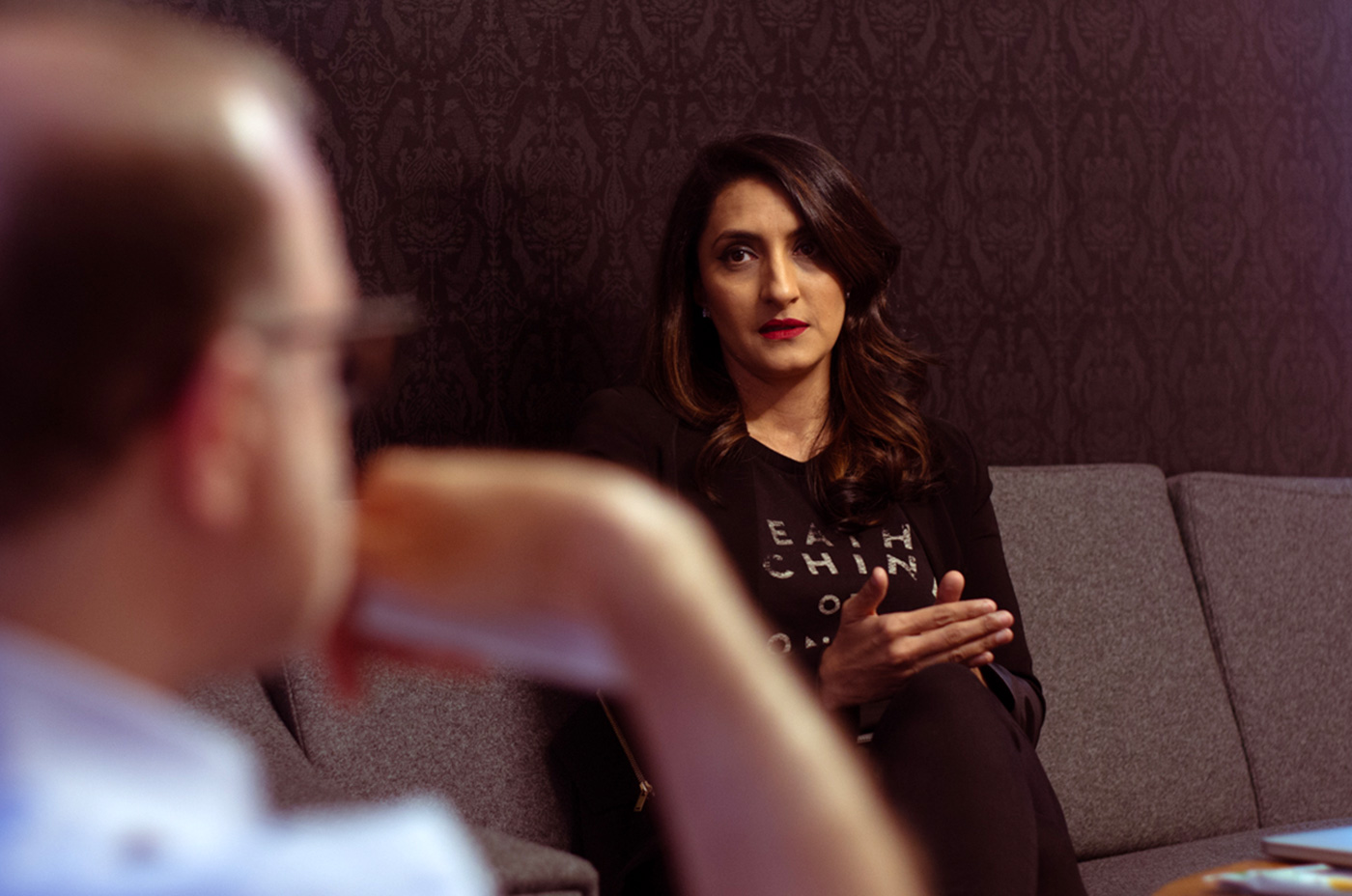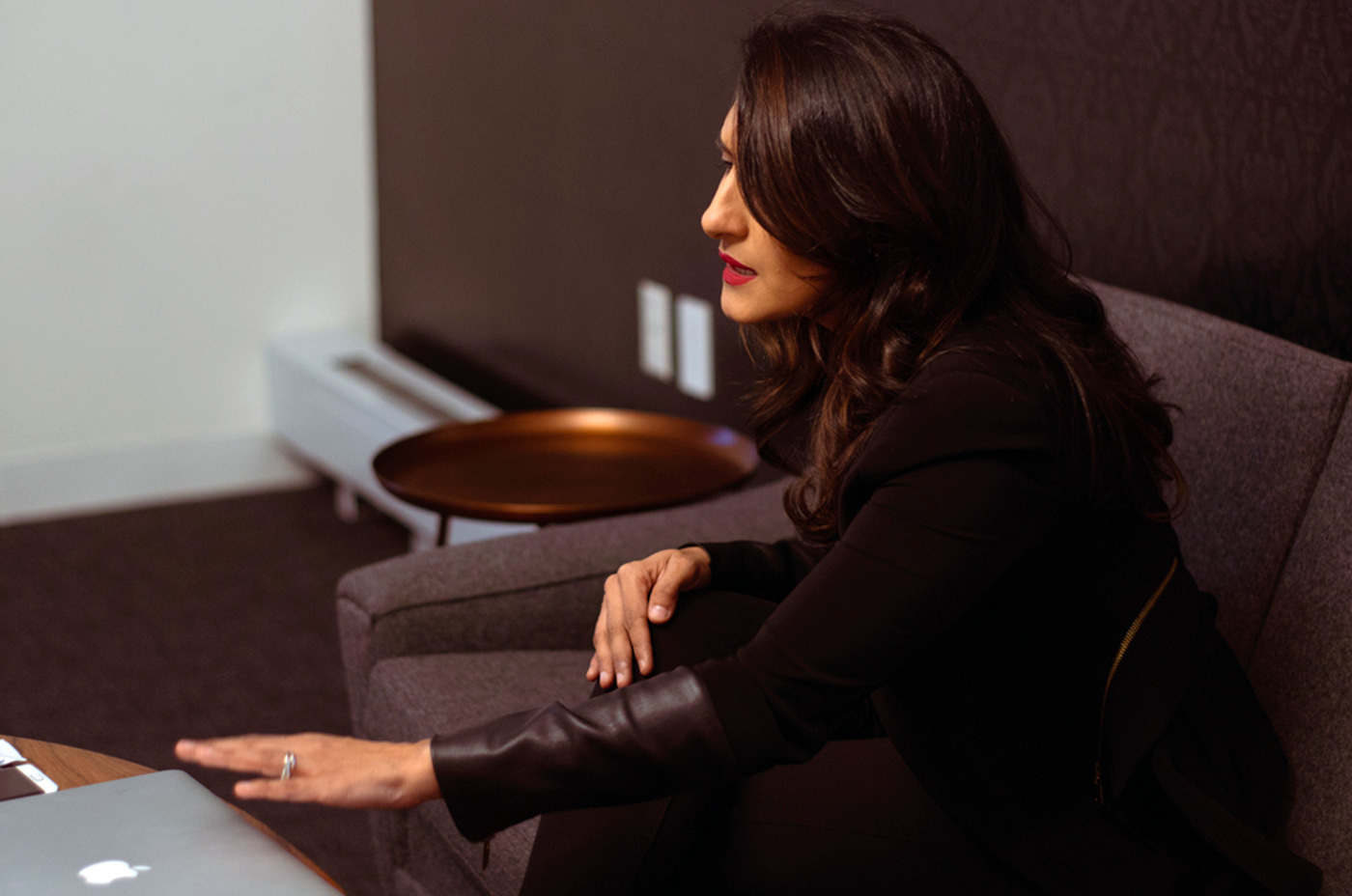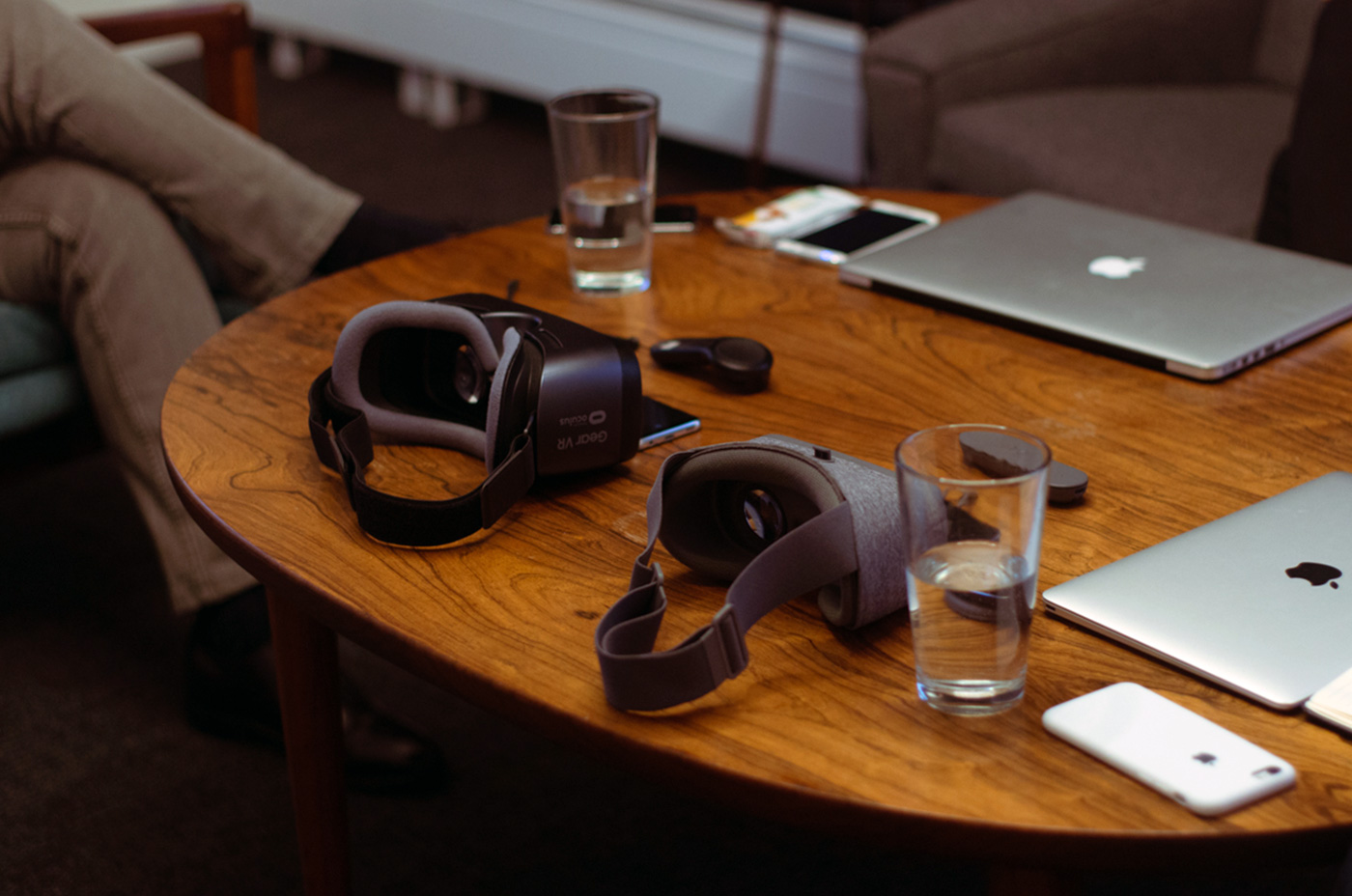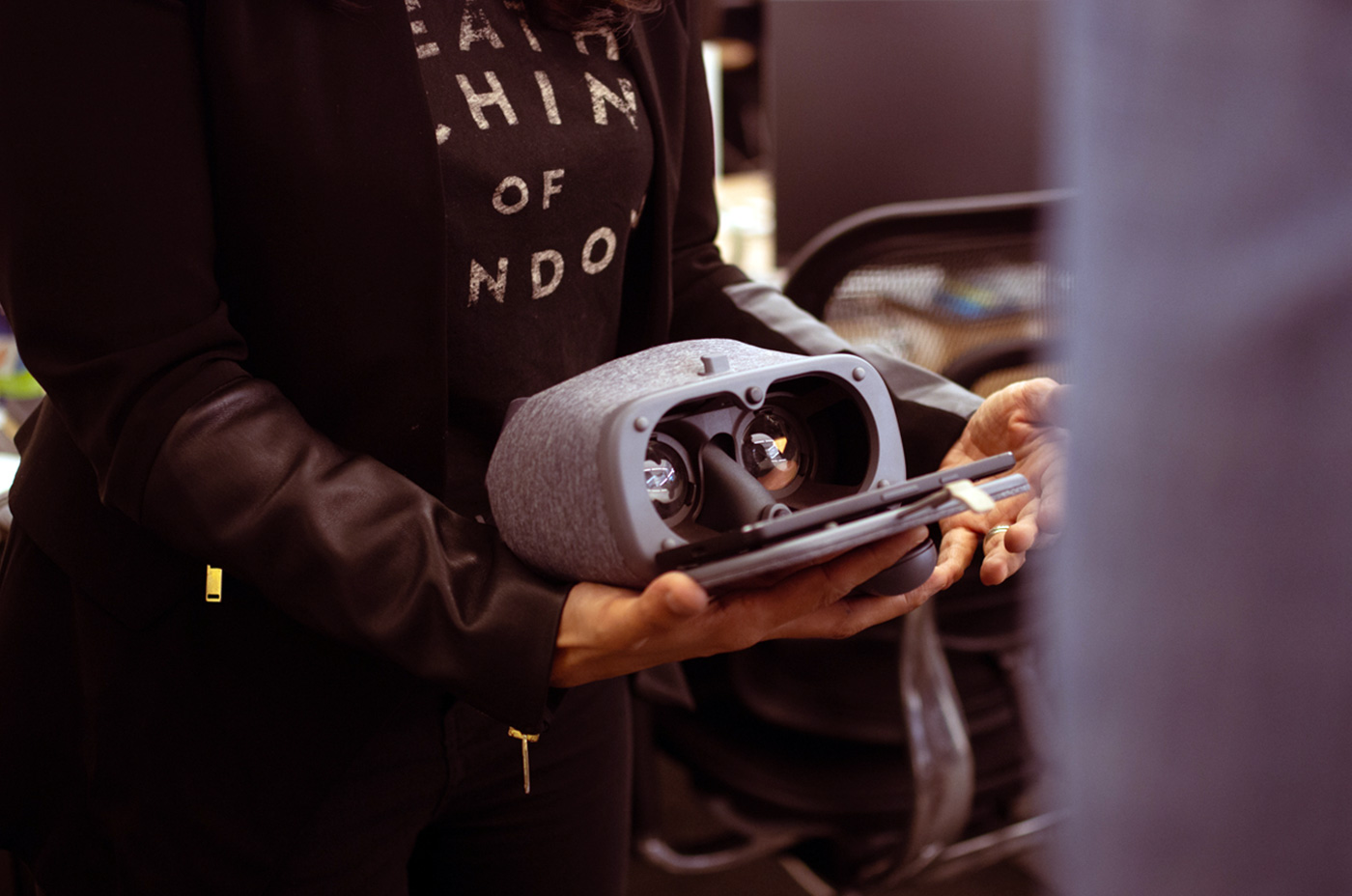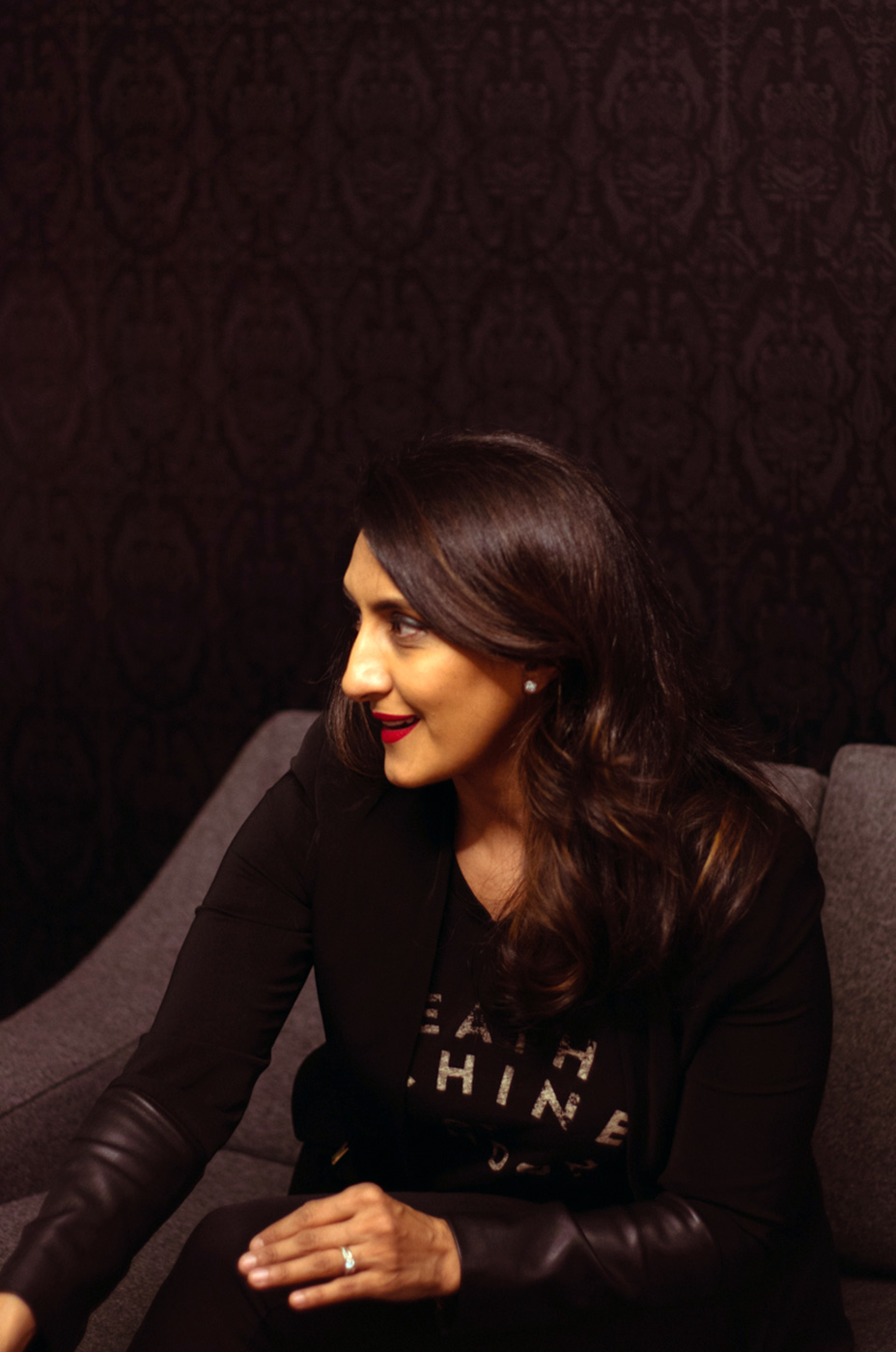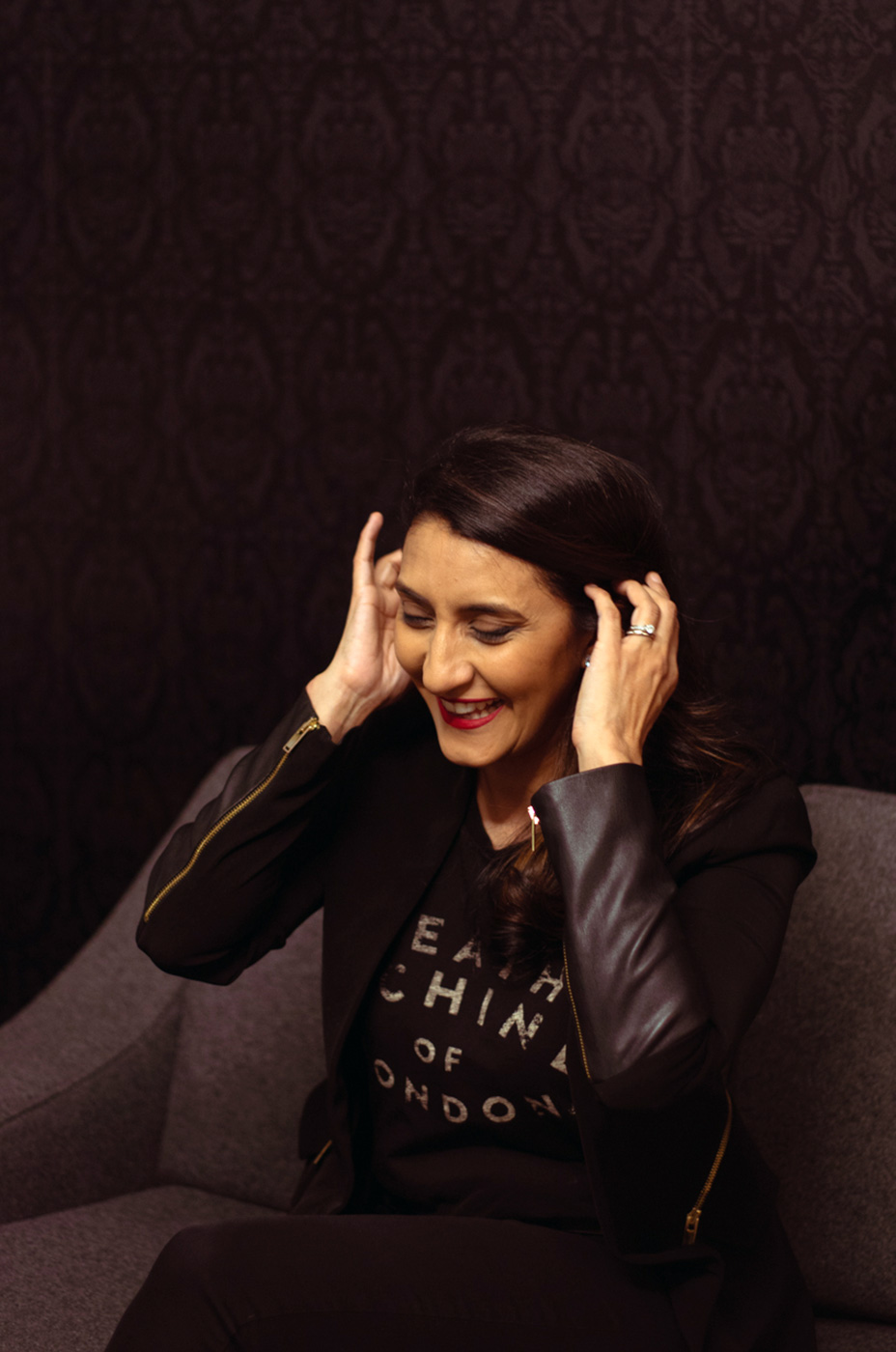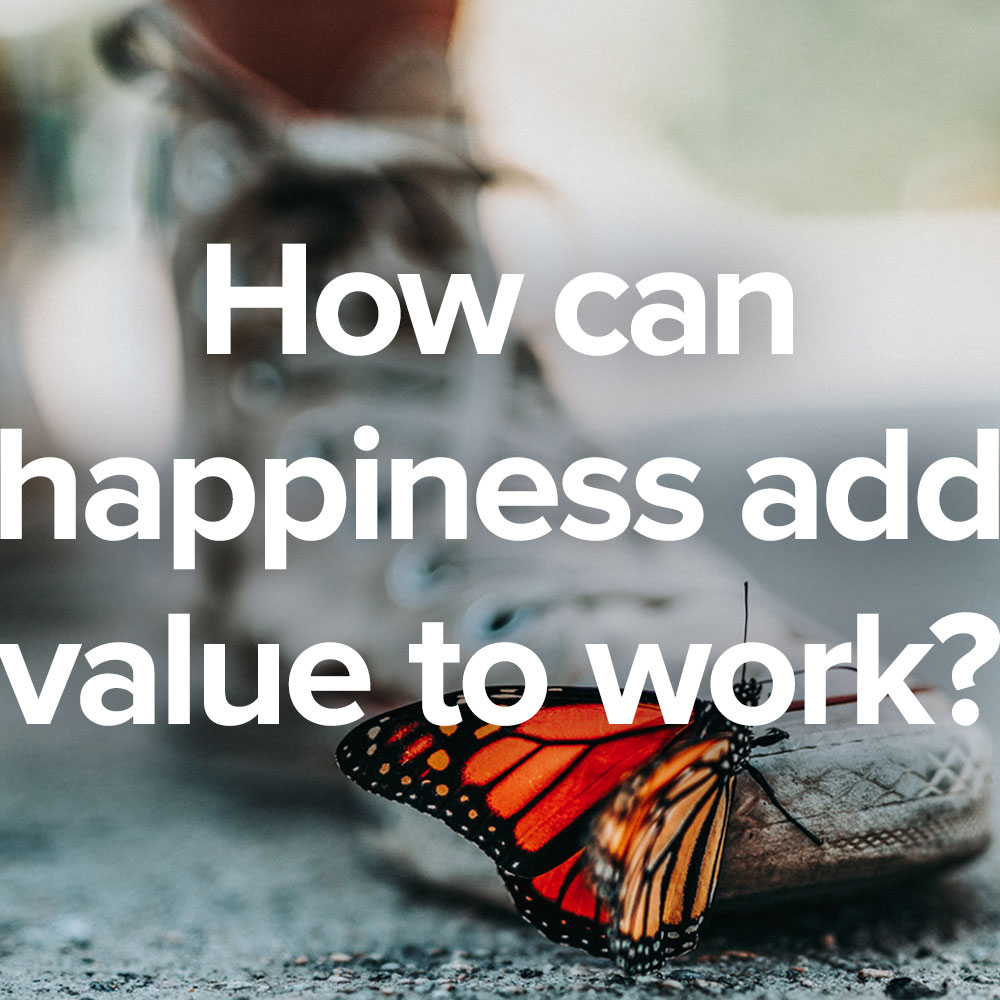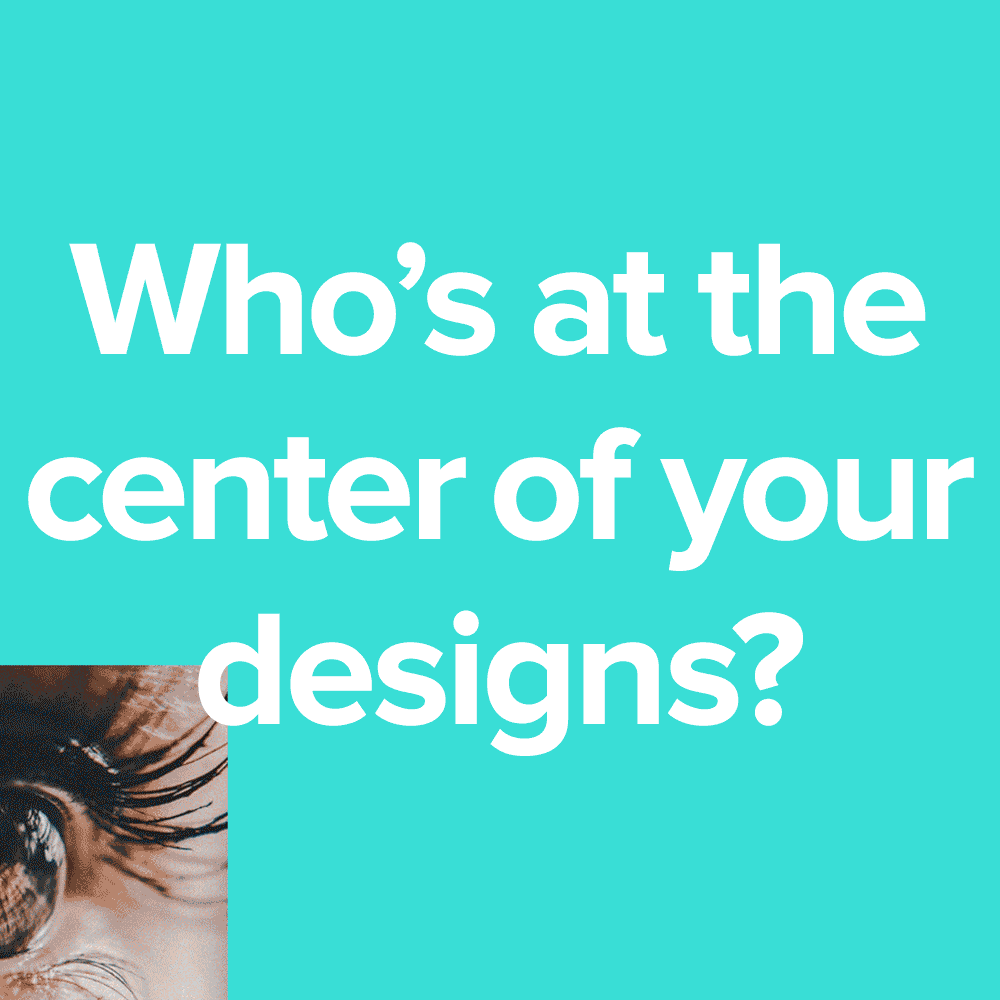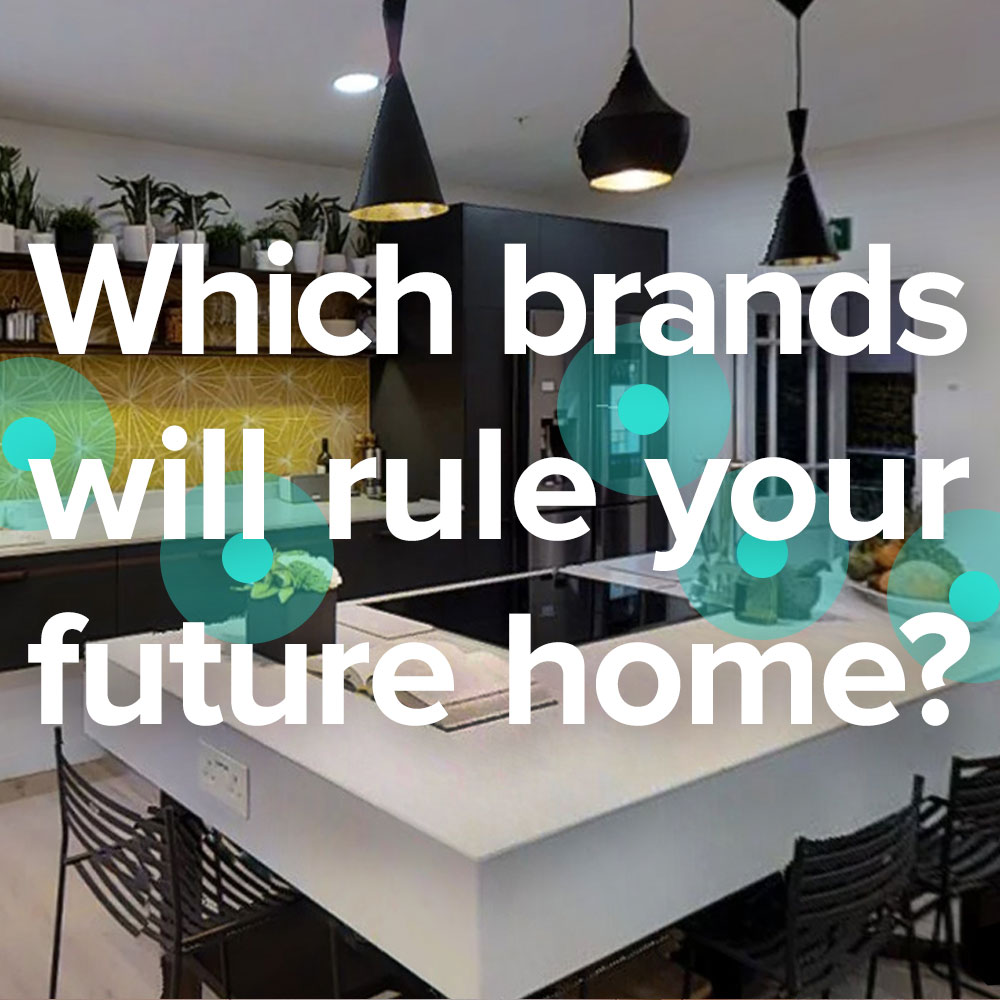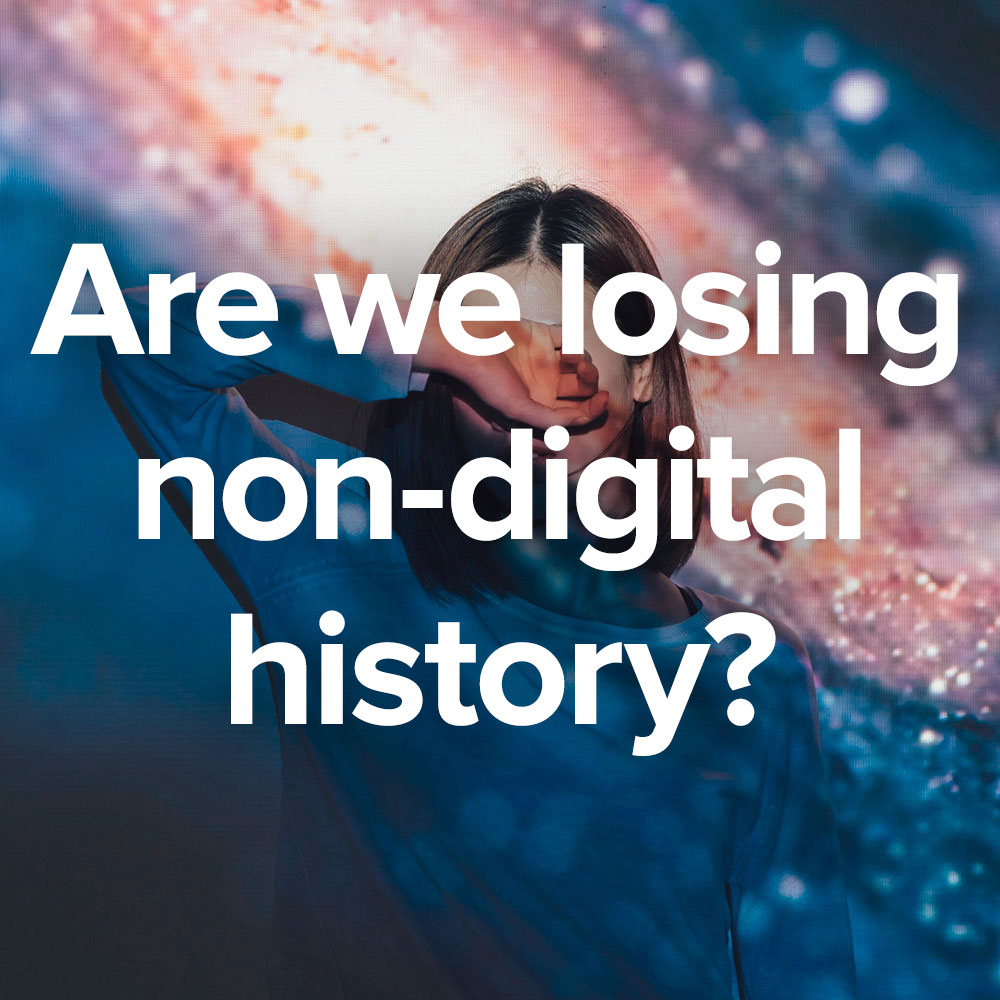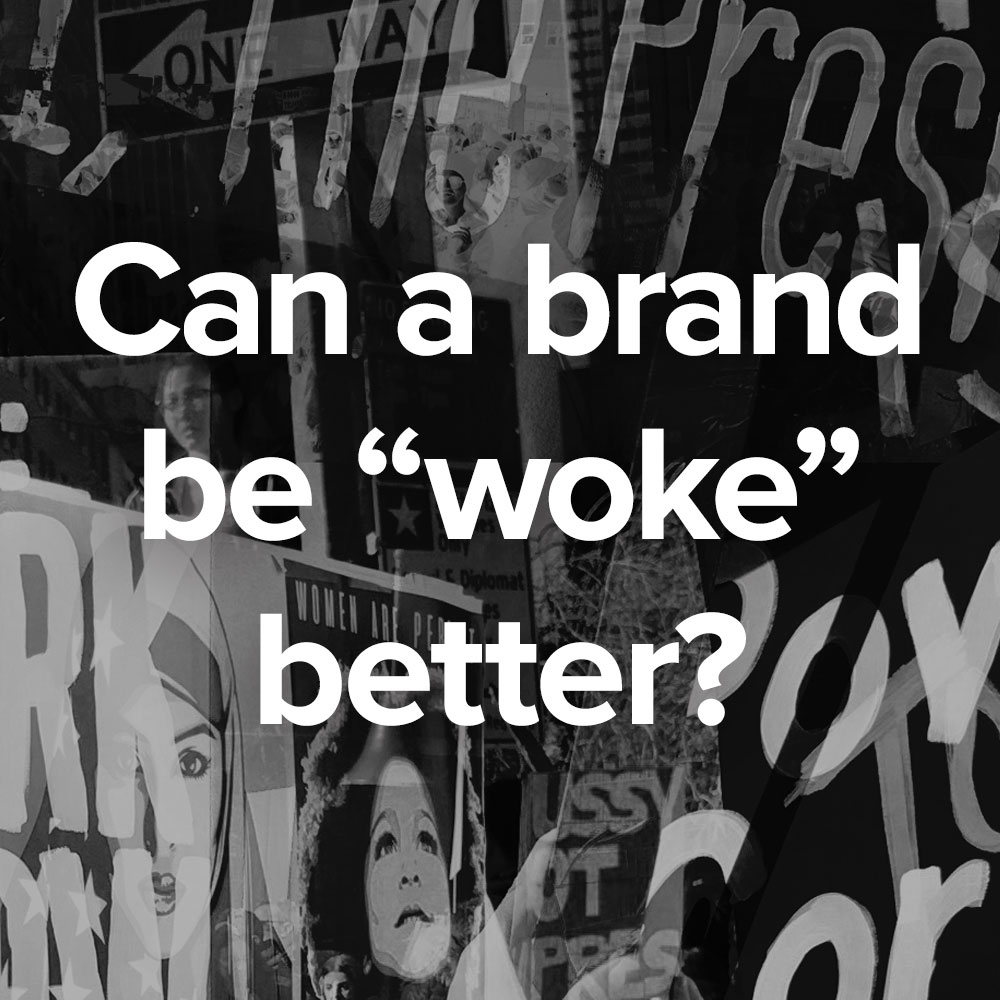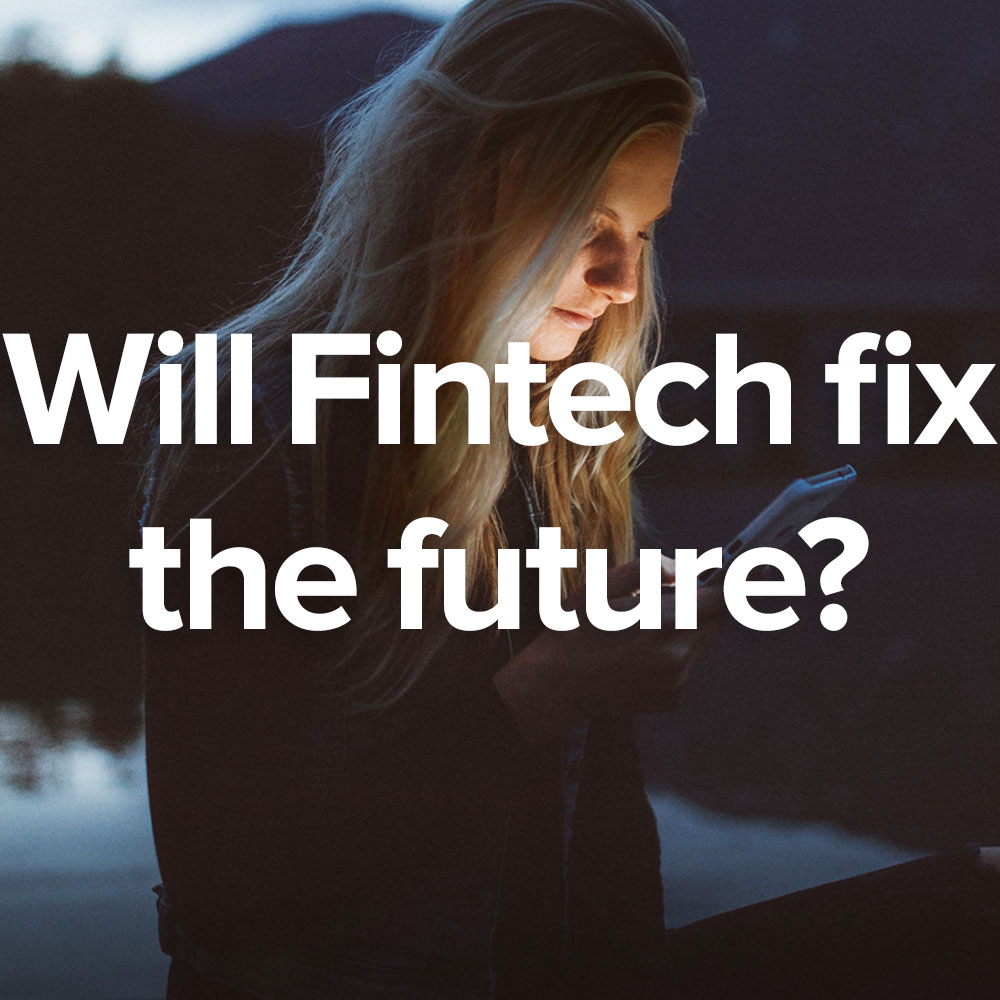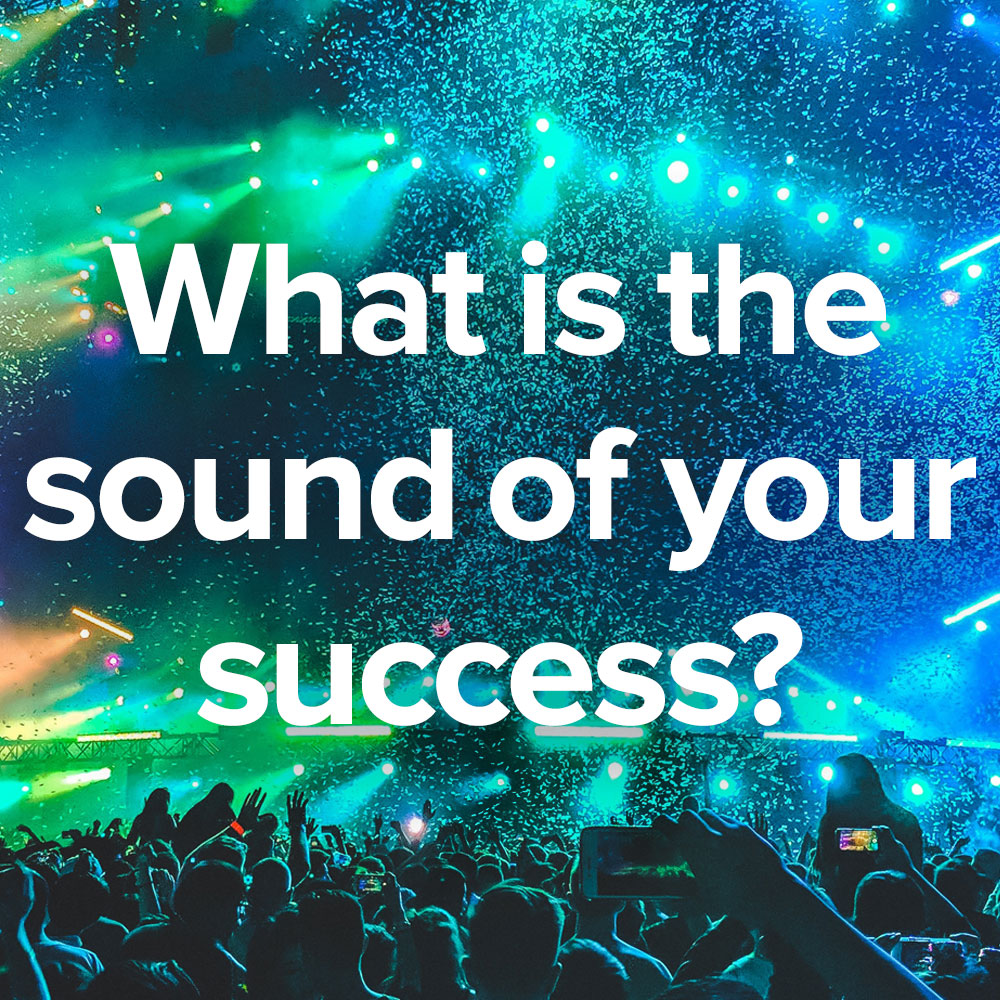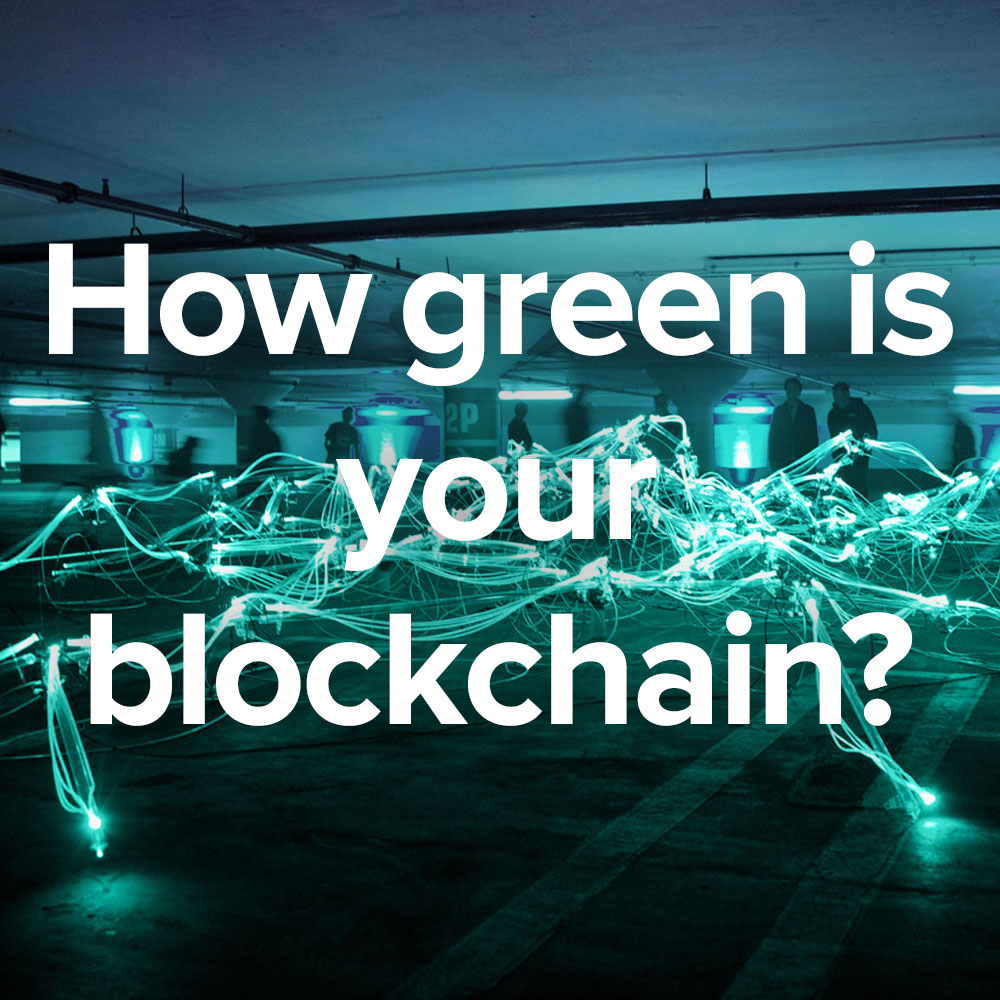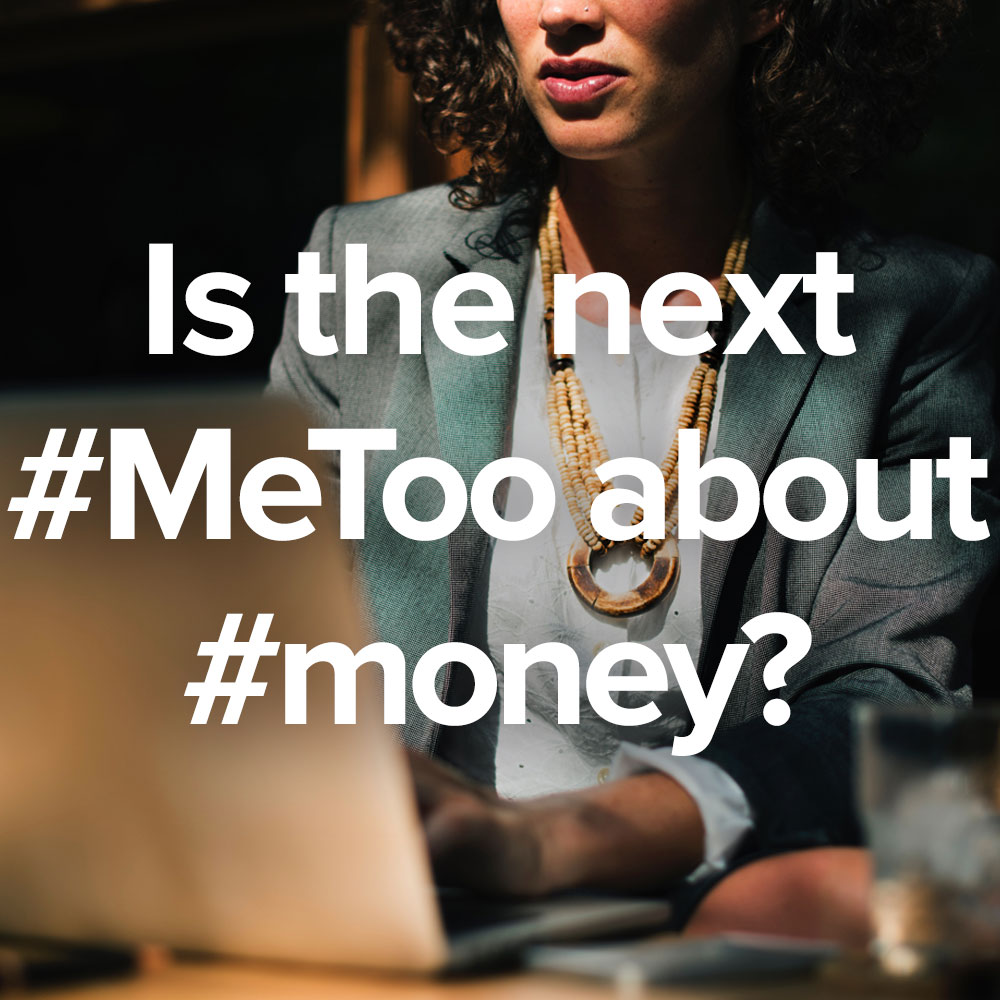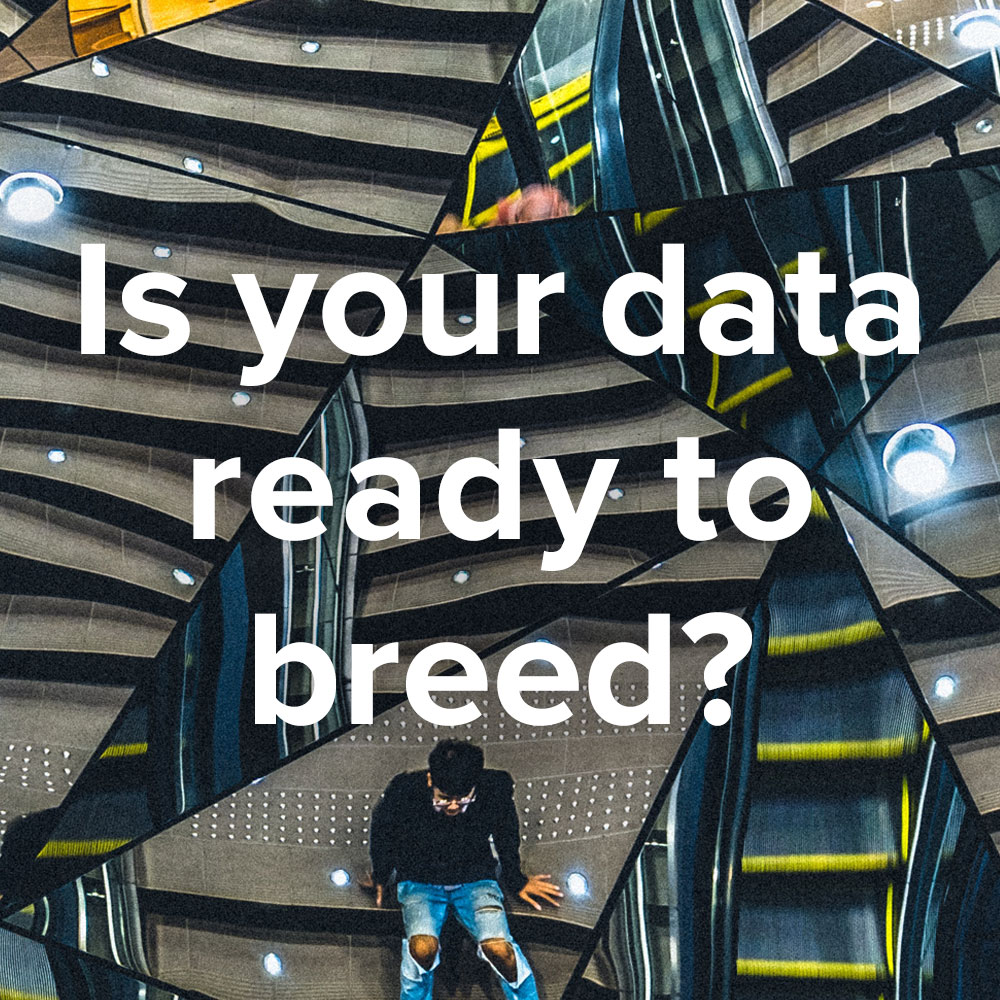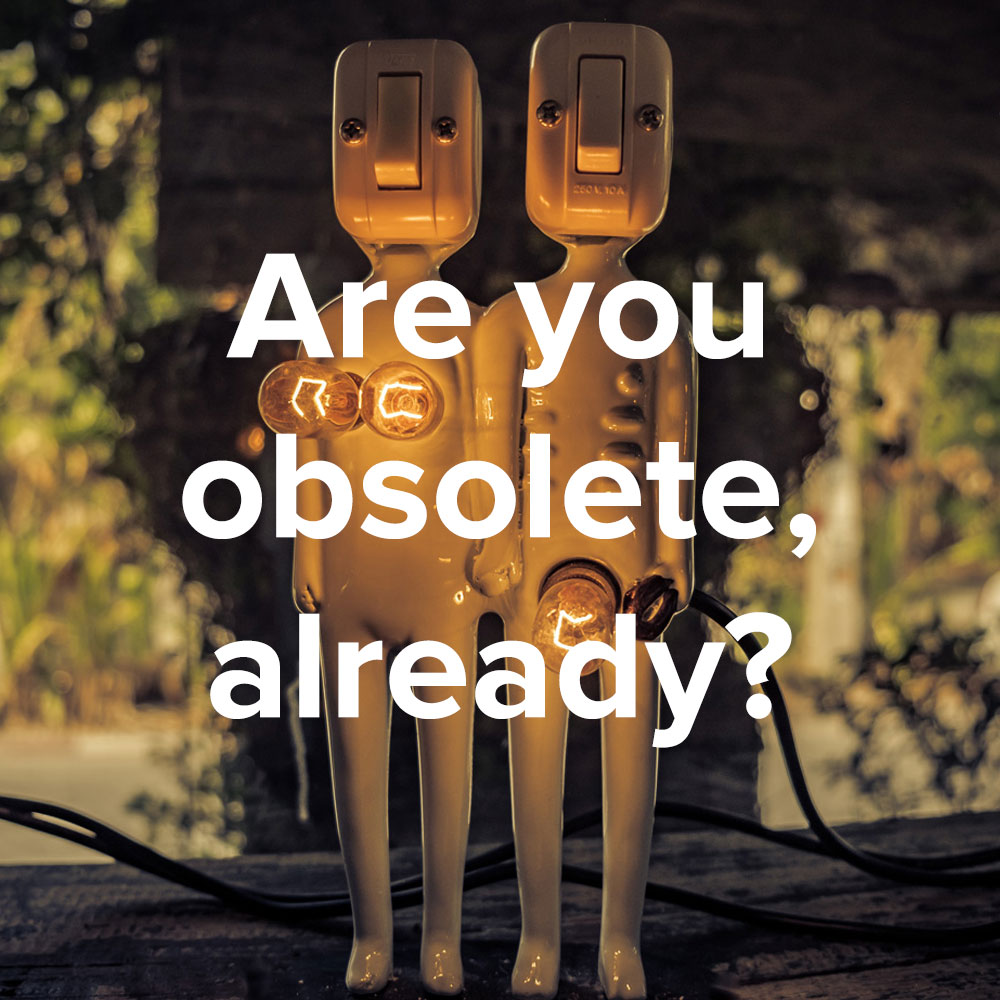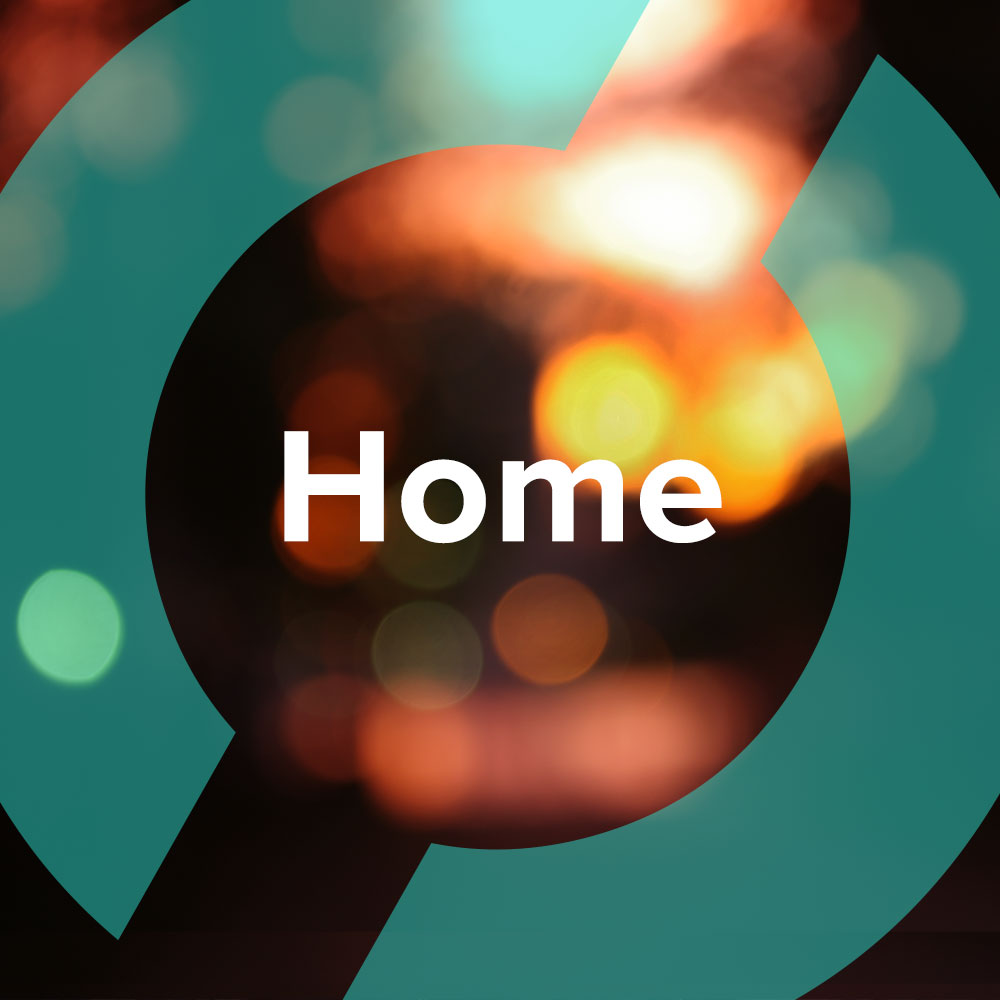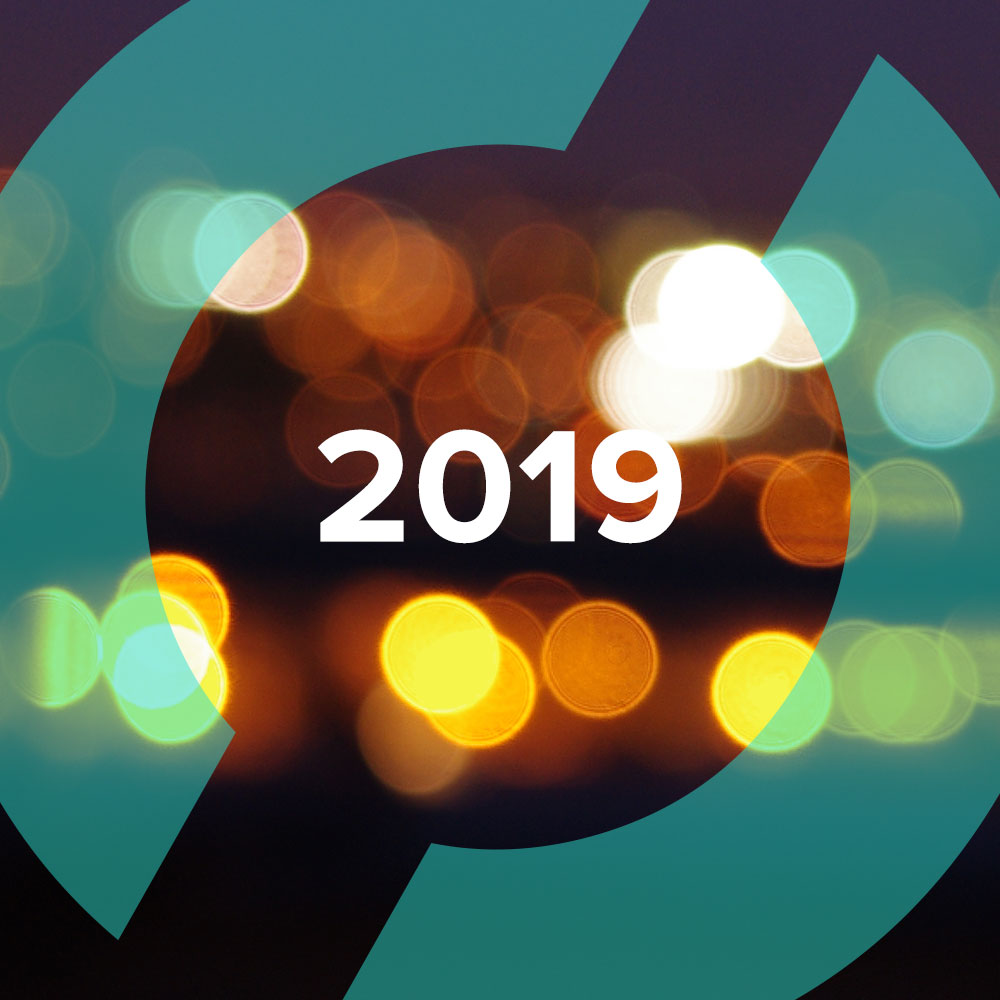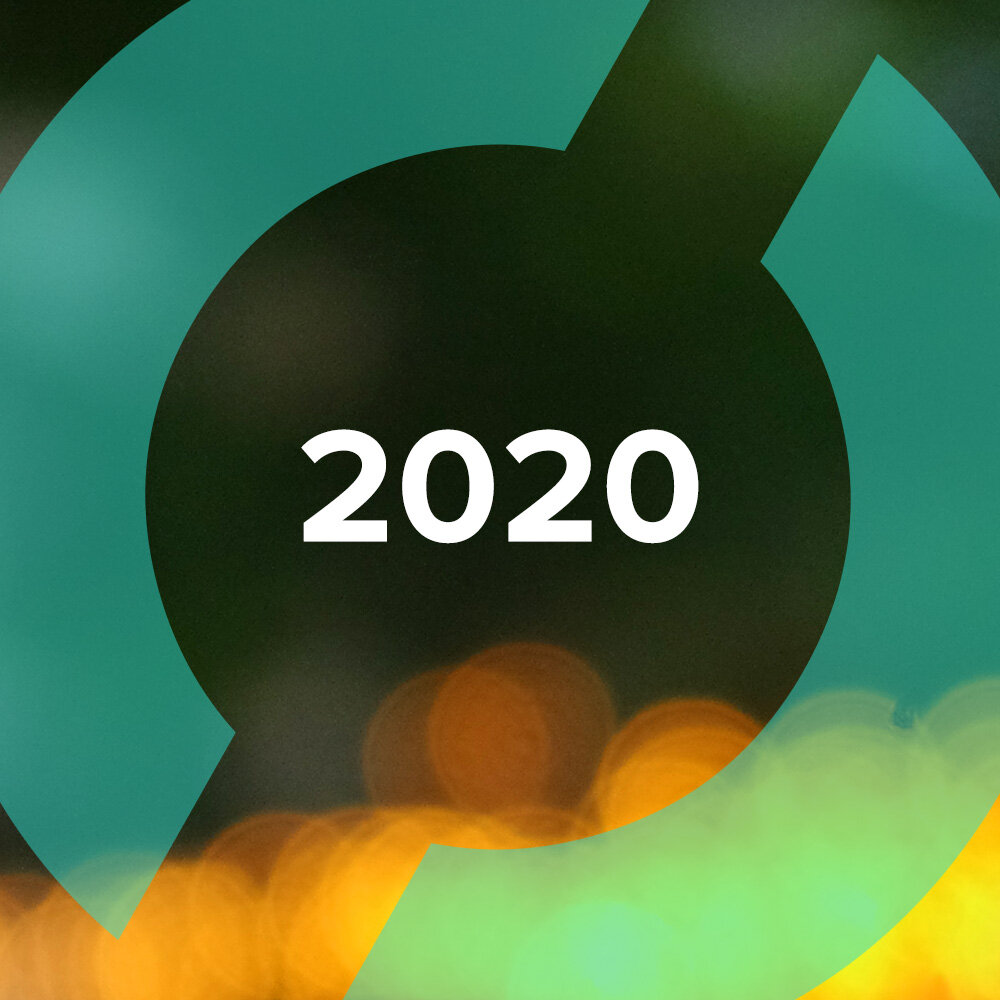“_________”
Resh on Virtual Reality.
Brands should be thinking about VR, 100%. Should they be doing it? That’s a good question. There still needs to be an idea and strategy around it, same as with radio, TV, digital, mobile. There has to be a reason why it exists and why it is purposeful for your brand.
— Resh Sidhu
Creative Director at AKQA, Queen of VR, TEDx speaker, Cannes Lions 2018 judge and Top 50 Creative Leader
— On a recent Tuesday evening, an email popped up in my queue at home from Notify NYC, warning of severe thunderstorms. Imminently. Strong winds were expected. This wasn’t welcome news. I needed to hightail it out of there for Manhattan, no cocktail hour in the armchair, lost in conversation with a couple of fingers of Laphroaig. Luckily, with a little help from a car service and the M train, I arrived on time for my appointment with Resh Sidhu, creative director at AKQA, a global digital agency. Strong winds? Didn’t feel any — and then Resh started to talk, and, forgive the wordplay, blew my colleagues and me away. Resh is one of the world’s foremost experts on an emerging technology — virtual reality — and what it can do for you. You, yes. And you and you and you, at the same time. All of us, together, as it should be.
Resh, before we get into the beauty of VR, what’s the state of play with the technology now? Is your virtual my reality, as it were?
Resh — No, not quite yet. Unfortunately, the media has overhyped the technology over the past few years, but really, it’s like we’re in the early days of filmmaking. Consumers are not really engaging with the technology because there's not enough content right now. But some of the content that is out there is amazing — though not necessarily accessible to everybody, because it may be only usable through one brand of headset. And there are multiple brands of headsets, with new ones coming out all the time, and they often don’t talk to each other.
“Think of it: you can have company when you have no company in the world. You don’t have to be lonely. You can connect. VR can physically connect people, bringing some out of isolation. It is actually possibly the one medium that can bring us together.”
Early days of filmmaking. We’ve come a long way since then. So there’s a long way to go?
It took over 100 years of storytelling for film to get to where we are today. And now we go to the cinema where we see these masterpieces created. But again, it took a long time to get there from the very early days. I remember the clip of that movie from the late 1800s, Arrival of a Train at La Ciotat. The audience is said to have been so scared they ran out of the theater, because it felt so real. VR has been there in its early days. It’s kind of big, it’s clunky, we’re still experimenting with it.
How important is it to our future that VR be there as a communications conduit?
Very. Let’s look at the entertainment aspects of VR. There’s a communal benefit there, of course. Think of it: you can have company when you have no company in the world. You don't have to be lonely. You can connect. VR can physically connect people, bringing some out of isolation. It is actually possibly the one medium that can bring us together.
But VR goes beyond entertainment, right?
Definitely. As excellent as it is, VR is more than just, say, “Fantastic Beasts and Where to Find Them.” It may not be mainstream yet, but we’re seeing more and more really powerful and interesting uses. For example, right now, it’s being used to help people suffering from various health ailments, such as Post-Traumatic Stress Disorder. There’s another VR experience that’s been created for Alzheimer’s Disease patients, where the patients are put into this beautiful atmosphere they may recall from the distant past, in this case, a re-creation of Queen Elizabeth’s coronation. It allows patients who are slowly losing their memories to create connections with their caregivers and family members.
I suppose there’s an element of VR wherein it allows you to walk a mile in another’s shoes, to get a better understanding of what a day in their life might be like, to empathize. And that might help us all get along…
One of my favorite VR experiences is the audio diaries of John Hull. It eventually became a film documentary called “Notes on Blindness,” but with an adjacent VR experience. Hull was a writer, and he was slowly going blind. And what he did is, he created these audio diaries of his experience, and many years after his death, two filmmakers decided to make a film about him and his journey. The filmmakers suddenly thought, we really think we can help people experience what he felt. They took his real audio recordings and placed them into a VR experience. There are six chapters that take you through how he sees the world, through his eyes, as he slowly goes blind. Along those lines, I’ve also established a start-up that uses VR experiences to help children tackle the common problems of childhood, such as Attention Deficit Disorder or cyberbullying.
“I’ve been in advertising long enough to know that I don’t want to pollute the world with another bad experience. We want to give consumers something that adds value to their lives. That is the fundamental goal. With VR, it’s the quality of the experience.”
How are companies using VR commercially?
For brands, VR connects with their audiences in a way that’s really deep, because VR is essentially creating an imaginary world, but one that still feels visceral. It feels real. I have brands all the time coming to me saying, okay, what are you doing? Is it just a gimmick? Is it going to go away? And I think part of my role here is to really help brands navigate this medium, understand basically where the technology is, where it’s going to go, and what that means for them as a brand.
Is VR an automatic win for any company that chooses to deploy it?
Brands should be thinking about VR, 100 percent. Should they be doing it? That’s a good question. There still needs to be an idea and a strategy around it, same as radio, same as TV, same with digital, same with mobile. There has to be a reason why it exists and why it is purposeful for your brand.
How has that worked out so far?
I think some brands have tried to jump on the VR bandwagon, done a piece, and not gotten the reach that they expected because they had never been informed that the experience isn’t mainstream yet. So, if you have a business problem to solve and you want as many people as possible to hear the solution, VR is probably not the answer for that. But if you want to be seen as cool, or if you want to grab attention…
I get the sense that for you, however, it’s not as facile as all that.
Right. Clients come to us sometimes with what they think is a great idea. It’s our job to help them understand whether it really is a good idea and interrogate it, and if it is, help them deliver it, and if it isn’t, help them understand why. I’ve been in advertising long enough to know that I don’t want to pollute the world with another bad experience. We want to give consumers something that adds value to their lives. That is the fundamental goal. With VR, it's the quality of the experience.
How did you come to be here, by the way, creative director at a digital agency, focusing on Virtual Reality?
As a child, I loved drawing and being creative. I was always drawing. Eventually, I realized I love this, and that I was really good at it, and people got pleasure from it, and I loved that, too. One day my Dad brought home a Commodore 64, and I was fascinated with that machine, because it allowed me to become a Ninja or a race-car driver and be transported into another world. I appreciated how technology could transport you. Eventually, I combined art and science, and here we are.
You have a lot of competitive fire. Surely you had a role model along the way?
I had an amazing role model: my mom. She worked three jobs. We lived in council housing, in a very rough neighborhood in West London. We didn’t have much, but she was phenomenal. It wasn’t until I became a mom myself that I realized how much influence mothers can have on your life and what they did for you at the time. But she just did it. One thing, she said to me, I’m not going to be like a typical Indian parent and tell you to be a doctor or lawyer. But she said that whatever you do, do something you love because the chances are you'll be good at it, and whatever you do, get an education, because no matter what, no one can take that away from you. And she was like, be the best at what you do. And she just drilled it into me every single day.
So, if you were advising someone contemplating a career, what would you say?
Whether you went into Virtual Reality or not, you have to love what you do. You have to love what you do, and I think if I didn't love it, if I didn’t get excited about it or feel challenged by it or wasn’t learning something different, I would get bored. And I would not want to be bored. I get up every day and I really enjoy my job and I don’t do it for the money. Never do it for the money.
Thanks, Resh!



